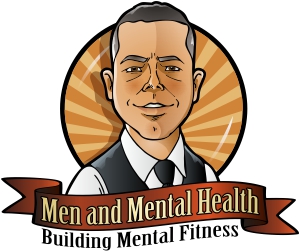Frequently Asked Questions.
Q. What is the difference between psychotherapists, counsellors, psychologists and psychiatrists?
A. Psychiatrists are medical doctors who have specialised in diagnosing and treating mental illness. The main priority of a psychiatrist is to prescribe and monitor medication. In the U.K. psychiatrists rarely practice psychological approaches to their patient’s difficulties.
‘Counsellor’, ‘psychotherapist’ and ‘psychologist’ are different terms to describe practitioners of psychologically orientated ‘talking’ therapies. For historical reason different groups of people came to describe themselves under these different professional terms. These kinds of therapists work with a range of people and not just the mentally ill.
Q. What is a ‘theoretical orientation’ and why does it matter?
A. There are basically four different schools of thought in psychological therapies about what therapy should be about and how it should be practiced. Any particular therapist may be trained in one or several of these different approaches. I, for example, have a broad background in humanistic, psychodynamic and cognitive behavioural approaches to therapy. These are three of the four main approaches. The fourth, transpersonal approaches to therapy, is something I am interested in but have had no formal training in.
Some therapists, particularly those trained in just one approach, can sometimes be a little evangelical in promoting their approach to the detriment of others. Similarly, some therapists who are trained in several approaches can sometimes be accused of not being theoretically rigorous.
Whether these differences are actually important is easier to answer. On the whole, it is the quality of the relationship you have with the therapist that determines outcome, and less on which theoretical model the therapist uses. Having said this, there is little point in entering therapy with someone you like but whose approach you do not respect or understand. It is always a good idea to ‘shop around’ therapists and ask lots of tricky questions until you find one you get on well with.
Q. Why have you specialised in men’s issues and counselling men?
A. Gender plays a hugely important part in all our lives. I was struck when training to be a therapist that most of the trainees were women, and it was sometimes difficult getting a man’s perspective heard or valued.
This is not to say that individual female therapists should not counsel men, more to indicate an institutional bias in the practices of training therapists. As a result of this, I became interested in men’s specific issues, such as male rape and HIV (which in the early 1990’s was a mainly gay mans disease).
This interest then broadened with my clinical practice. I believe it is best to be a specialist in one area, and have continued to find this particular area to be interesting and challenging.
Q How long will therapy take?
A The short answer to this question is not a session longer than it needs to. The long answer would be too long to discuss hear! I would, however, be able to give you a more detailed personal assessment if we met for an initial consultation.
Q Why see a private therapist when N.H.S. therapy is free?
A My N.H.S. counterparts often see more clients, don’t have the same flexibility with supervision and consultative support, and as a consequence don’t have the same time to reflect and research the clients they see. Also I work afternoons and evenings so I can see you at the end of the working day. My last session is 9-10 pm!
Q. On what basis do you accept clients.
A. I have to be convinced of a number of factors before starting work with a client. First, that there is sufficient rapport between myself, and the client, to form an effective working alliance. Second, that I have the skills to be able to help this particular client. Finally, that I can be sure I can work with the client safely and effectively. If the answer to these questions is yes, then I am happy to recommend we proceed.
Q. Do I work with children?
A. No, I work with men from the age of 16 into old age.
Q. Do you work with women?
A. Yes. I work with women as a relationship counsellor and am happy to work with women one-to-one too.
I hope you have found these answers informative, if you still have more questions, please feel free to contact me.



